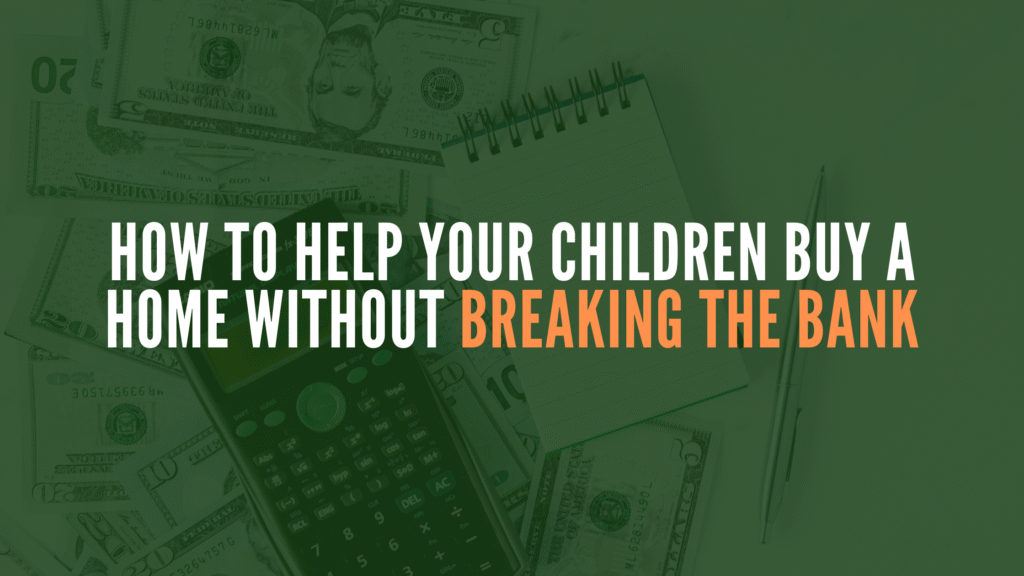If you’re thinking about upgrading your own home and helping your child secure theirs, there are several options to consider. Here are three ways to help your child without taking on excessive tax burdens.
Option 1: Make an Outright Gift
One option is to simply give your home to your adult child. It’s an incredibly generous gesture, but there are tax implications to consider.
Tax Considerations:
- Gift Exemption: The IRS allows a $16,000 annual gift tax exclusion per recipient (for 2022). This means you can give your child $16,000 worth of assets each year without impacting your estate exemption.
- Unified Federal Gift and Estate Tax Exemption: If the value of the home exceeds the $16,000 annual exclusion, the difference will count against your $12.06 million lifetime gift and estate tax exemption.
- Married Couples: If both spouses are involved in the gift, you can each use the $16,000 annual exclusion, meaning up to $32,000 can be gifted annually without reducing your lifetime exemption.
Giving the home away while it’s still appreciating is an estate-tax avoidance strategy, especially if you expect it to grow in value.
Important Note:
- If the home is in your estate at your death, its appreciated value could be subject to estate taxes unless it has been removed through gifting or other strategies.
Option 2: Arrange a Bargain Sale
If you don’t want to give away your home outright, consider a bargain sale to your child. You can sell your home for less than its fair market value, making the difference between the sale price and the home’s market value a gift.
Tax Considerations:
- Gift Tax: The IRS treats the difference as a gift of the amount between the bargain price and the market value. This can help reduce your taxable estate, but it does mean you’re still making a gift in the eyes of the IRS.
- Caution: If you plan to continue living in the home, this option can lead to problems with your estate. The IRS may include the entire home value in your estate if you continue living there, even if you’re paying your child fair market rent.
Option 3: Full-Price Sale with Seller Financing
If you want to help your child purchase the home, but are not keen on gifting it, a full-price sale with seller financing could be a great option. You sell your home at its fair market value to your child and act as the lender.
Seller Financing Considerations:
- Seller Financing: In this case, you act as the lender, offering your child a loan to cover part (or all) of the purchase price.
- Interest Rates: You can charge interest, but it must align with the “applicable federal rate” (AFR), which is set monthly by the IRS. The AFR tends to be much lower than commercial interest rates, providing substantial savings for your child.
For example, in April 2022, the long-term AFR was 2.25% for loans of over nine years, while the mid-term AFR was only 1.87% for loans between three and nine years. Commercial mortgage rates, by contrast, were around 6.1% for a 30-year fixed mortgage.
The Benefits for Your Child:
- A lower-than-market interest rate can save your child money over time, especially if they are struggling to afford high commercial mortgage rates.
Each of these strategies offers different benefits, depending on your goals:
- Outright Gift: Best if you want to remove the home from your estate and provide your child with a substantial asset without worrying about repayment.
- Bargain Sale: A middle ground if you’d like to provide a financial boost without giving away the home outright, but be mindful of the potential estate tax issues.
- Seller Financing: A practical choice if you want to sell the home at full price but also help your child with more affordable financing.
If you’re interested in any of these strategies, or want to discuss the tax implications further, please reach out. We can help you navigate the best approach based on your specific situation.

